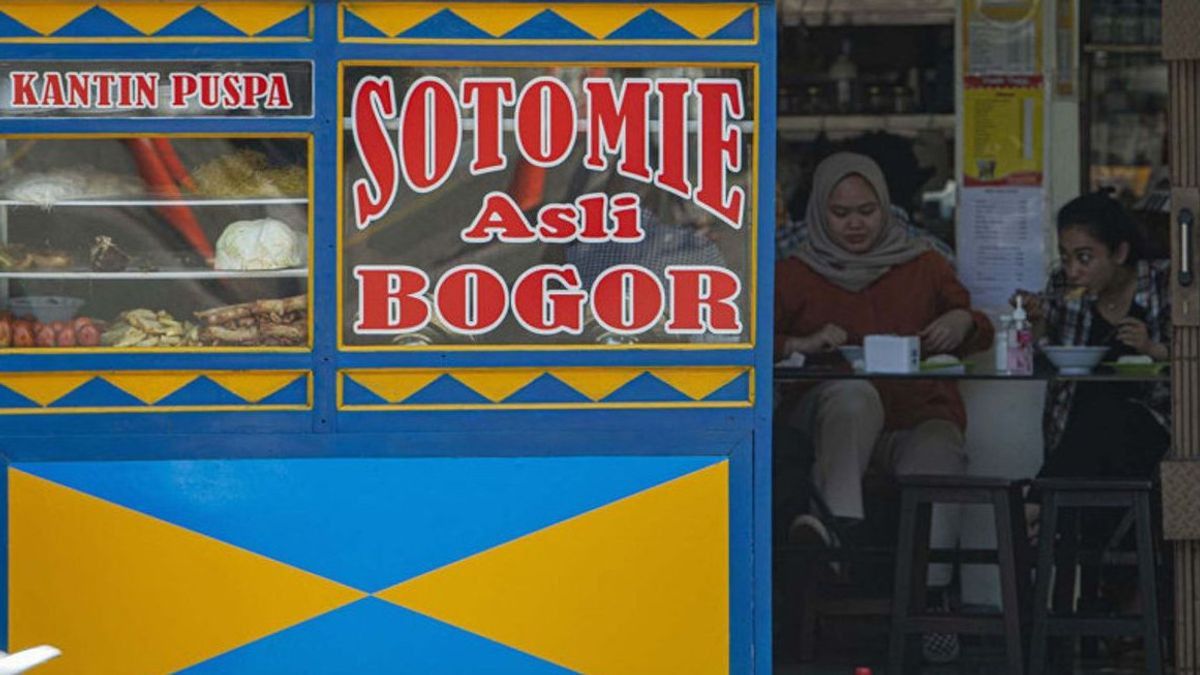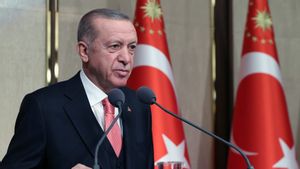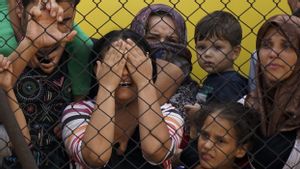JAKARTA - The government stipulates the rule of eating in place for a maximum of 20 minutes in the extension of PPKM Level 4. The rule is a question. How to ensure its implementation? Some consider it a joke. After all, what is to be expected from a policy whose legal basis is not clear? So don't be surprised if the derivation of the rules is weird.
Quoted from the covid19.go.id website, the extension of the restrictions is based on the Instruction of the Minister of Home Affairs (Inmendagri) Number 24 of 2021 concerning the Enforcement of Restrictions on Community Activities Level 4 and Level 3 Corona Virus Disease 2019 in the Java and Bali Regions. Nothing has changed even though since the beginning PPKM was implemented on the basis of the Minister of Home Affairs being questioned.
Let's look at it in a structured way. PPKM, from the "micro", "emergency" or the latest with level criteria is not based on a clear legal position because it does not refer to the applicable law. Law Number 6 of 2018 concerning Health Quarantine is the most likely to be used because it contains many things as a reference for pandemic policies in Indonesia, for example.
Instead of making the Quarantine Law a reference, the government seems to have avoided it. Even when referring to Law 12/2011 concerning the Establishment of Legislation, the Inmendagri PPKM does not have a clear position. Indeed, in article 8 paragraph 2 of Law 12/2011 it is explained that other regulations issued by the minister also include legislation.

"But there are conditions. He is regulated as an authority. So there must be a law that delegates that authority," said Institute for Criminal Justice Reform (ICJR) researcher Maidina Rahmawati to VOI.
The instrument for delegating that authority is in the Quarantine Law. But the law was not used. Ideally, the government should form a derivative rule in the form of a government regulation based on the Health Quarantine Law. PP based on the Quarantine Law can accommodate the entire series of authorities to handle the pandemic more clearly.
"This is all in disarray. You should make rules, look at the existing rules as a legal system even in an emergency. It's not complicated. You don't have to make laws. Just make PP. Later, it can still be the authority of the central government," said Maidina.
Generate messy rulesA public policy analyst from Trisakti University, Trubus Rahadiansyah, said that the chaos in the PPKM regulations was not surprising. An ideal public policy is built with a mature process through study, planning, and public consultation. Without it all, what to expect?
"Because the rules were not clear at first, we'll see if they end up falling apart," Trubus told VOI, Tuesday, July 27.
Indeed, in the midst of an emergency, policy formation also requires speed. The functions of review, planning and public consultation can be overridden. However, this condition has forced the government to use the Quarantine Law as a policy basis.
Why? The Quarantine Law has derivative rules that can be used as policy references. And the Quarantine Law, which has clearly gone through a more mature study than the Ministry of Home Affairs that underlies PPKM. The legal basis of a policy is in fact not merely administrative.
It affects the derivation of rules as well as the implementation of enforcement of those rules. "Ideally, it refers to the law. So the policy should be based on a legal basis. Planning for public consultation if the situation is normal. If in extraordinary conditions, just use the existing law."

What Trubus says is in line with Griffith University epidemiologist Dicky Budiman. According to Dicky, the Quarantine Law, however, has gone through a long study that the government can use to formulate a pandemic control policy. There are four schemes provided by the Quarantine Law.
The four schemes are Regional Quarantine, Hospital Quarantine, Home Quarantine, and Large-Scale Social Restrictions (PSBB). There is no PPKM. According to Dicky, PPKM is a shortcut taken by the government to avoid the obligation to fulfill the basic needs of the community as mandated by the Quarantine Law.
"Emergency PPKM was created because it was a shortcut. Because the law has many derivatives that haven't been completed. It's not finished yet. That really needs to be fixed. It should be done immediately. In the end, our regulation can't be used," Dicky told VOI.
"Actually, the PSBB and the Territorial Quarantine have been the result of a long study. I was involved too. Only the burdensome thing is that there must be a government burden to cover the costs, the burden of life. , there are still many holes," he added.
Harvest criticismAs soon as it was announced, the 20-minute meal rule was immediately criticized. Netizens posted a number of memes satirizing policies whose implementation they questioned. DKI Jakarta Governor Anies Baswedan even responded to the sheer volume of memes, one of which dragged him down.
Anies is optimistic that the implementation of the rules can be carried out. According to him, basically 20 minutes is enough for a person to finish his meal. Sometimes, what takes time is chatting after eating. Anies also sees that the rule makes sense because it involves the use of masks
"There are a lot of people on social media, I was also asked 'can you do it, Mr. Anies, (eat) 20 minutes?' I said, God willing, we can," said Anies when met in Central Jakarta, Tuesday, July 27.
"The point is, eat moderately, don't hang out, then go home. For me it's not about 10 minutes, 20 minutes, 30 minutes, but about as little interaction as possible that has the potential for transmission," said Anies.
Can! God willing... https://t.co/STDr1XhVzw
— Anies Baswedan | Already #VaksinDulu (@aniesbaswedan) July 27, 2021
On the other hand, the Head of the Warung Tegal Nusantara Community (Kowantara) Mukroni asked the government to review the operational time and the maximum limit for eating in places is 20 minutes. Simple, for him, the rules do not specifically regulate the preparation of merchants to serve customers' meals.
"There are not only children and young people who eat at warteg. But there are old people too. Parents eat slowly. If they are told to hurry, they can choke," said Mukroni, quoted by Antara, Monday, July 26.
"There are traders who sell grilled chicken, catfish and others. This takes time (preparation), if you rush it, it can even be splashed with oil," he added.

Moreover, Mukroni views that the 20-minute meal time limit does not guarantee a person is safe from transmission of the corona virus. "We all know that the transmission of COVID-19 does not recognize hours, but seconds," he said.
Chairperson of the Indonesian House of Representatives, Puan Maharani, asked the government to explain in detail the basic rules for the 20-minute meal limit. According to Puan, the government should be able to explain to avoid ridicule. It is nothing. Policies that seem like jokes can undermine trust in the government.
“The government must be able to explain why the rules for limiting meal times can be considered effective in preventing transmission. Then how about technical supervision?" madam.
"If this is left without explanation and ends up being just a joke in the community, I'm afraid this will actually reduce people's trust in the government," he continued.
In terms of authority, the Minister of Home Affairs (Mendagri) Tito Karnavian admits that he understands that this policy sounds funny. However, according to Tito, this kind of maximum eating limit has been implemented in a number of other countries.
"It may sound funny. But abroad, in some other countries it has been implemented for a long time. So, eating without talking much and then 20 minutes is enough, after that give turns to other community members," said Tito.
*Read other information about COVID-19 or read other interesting articles from Diah Ayu Wardani, Wardhany Tsa Tsia, and Yudhistira Mahabharata.
Other BERNASThe English, Chinese, Japanese, Arabic, and French versions are automatically generated by the AI. So there may still be inaccuracies in translating, please always see Indonesian as our main language. (system supported by DigitalSiber.id)









